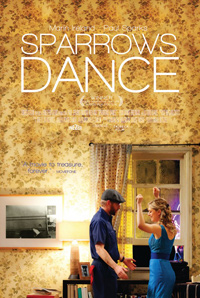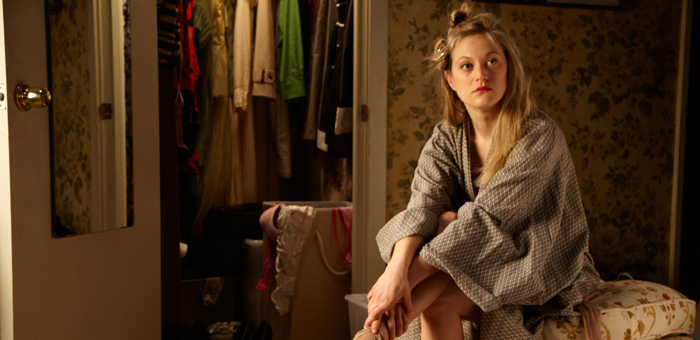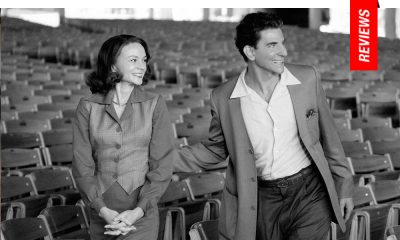Reviews
Sparrows Dance | Review
Reclusive Romantics: Buschel’s Contained Character Study Shines Beyond The Walls
 Location, location, location, that is essentially the most powerful cinematic tool in Noah Buschel’s latest static meditation about improbable love. An extremely minimalistic piece of indie filmmaking, Sparrows Dance utilizes every peculiarity about its setting and characters to make a feature-length offbeat romance out of what might have seem like very little on paper.
Location, location, location, that is essentially the most powerful cinematic tool in Noah Buschel’s latest static meditation about improbable love. An extremely minimalistic piece of indie filmmaking, Sparrows Dance utilizes every peculiarity about its setting and characters to make a feature-length offbeat romance out of what might have seem like very little on paper.
An unnamed woman (played delightfully by Marin Ireland) who lives by herself in a NYC apartment quickly reveals via her eccentric acts of self-reclusion that she is not fond of company. She orders food through the phone pretending she has someone else around as if ashamed of her voluntary isolation, and even demands the delivery guy takes the money and leaves the food by the door. One day the serendipitous malfunctioning of her toilet forces her to tone down her agoraphobic behavior in order for a plumber to come in and fix it. Strangely enough the handyman, unlike the woman, does have a name, Wes (Paul Sparks), who is a very talkative guy with a hidden talent, he plays the saxophone.
Thanks to the building’s rusty pipes the pair hits it off and develops a romantic friendship based on their uncommon characteristics and love for music. A particularly theatrical, yet charming, dance sequence is a highlight that showcases the crucial chemistry the actors needed in order to hold an entire film on a single location with no side players to support them.
The aforementioned devotion for the unique location weights heavier during the most intimate scenes between the unlucky lovebirds, a flickering reddish neon light from the building across the street acts as an emotional moody catalyst pacing beautifully every sentence of their conversations. It is during those perfectly simple raw moments that the filmmaker really shows his skills as a storyteller; once again the particular placement of the woman’s apartment lends personality to the tiny gem of a film.
Ireland is impeccable, and though this is a micro-budget film, it surely can serve as a breakthrough role for her talent to be noticed. Contained, fearful, and noticeably afflicted by emotional distress, her character slowly puts her guard down to let herself be loved by Wes, a love that never feels sexual -though there is a sexual component-but rather pure, untainted by judgment. Sparks is great on his own right, a quirky example of an idealistic romantic who seems to truly love this woman on a higher level than lustful desire. Little is known about their past besides the plausible explanation of how this woman survives in such hermit state, she is said to have been an actress that stop working because of her anxiety issues, and who know lives off of her residual earnings. Fair enough.
Conceptually Buschel’s film is beyond simplistic, it’s the delivery of the actors and his visual choices that make of the flat space a very cinematic experience. Its faults come from a very contrived ending that summarizes the extent of the characters’ affection for each other into a time-lapse of vignettes that quickly try to make the viewer aware of why they are together. At times it might inspire questioning about the length of the piece, which could have probably been successful as a short film concentrating on a more concise part of their rare affair. Yet, for all the flaws one could find, there is a certain charm in the limitations of Sparrows Dance’s minuscule scope. Ireland’s unfailing brilliance really makes the film; surely the director knew how to exploit such talent while combining it with Sparks’ bohemian nonchalant persona, a concoction that makes this two-piece emotional choreography a deeply affecting one.






























